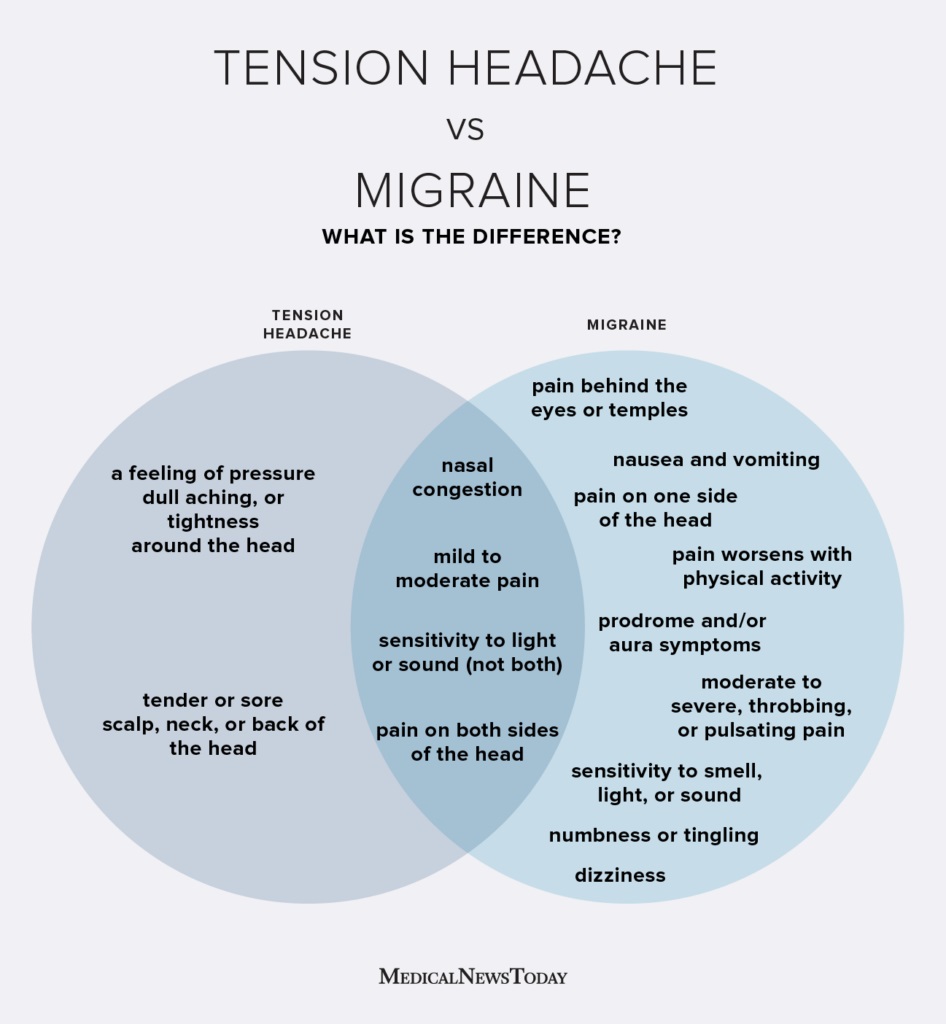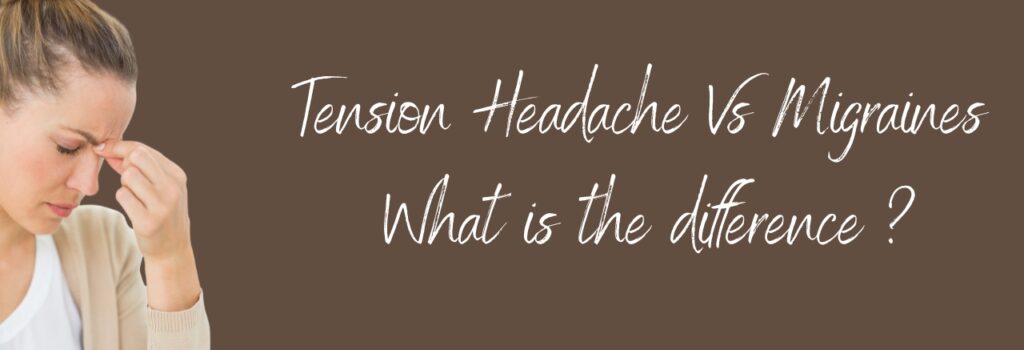If you experience headaches regularly, you may wonder if they are migraines or tension headaches. While both types of headaches can be painful and disruptive, they have distinct symptoms and causes. Understanding the difference between migraines and tension headaches can help you manage your symptoms and get the right treatment. In this article, we will compare migraines and tension headaches, explore their causes and triggers, and offer tips for prevention and relief.

What are migraines?
A migraine is a type of headache that affects millions of people worldwide. It is more than just a headache, as it involves a complex neurological process that can cause a range of symptoms. According to the International Headache Society, migraines are characterized by at least two of the following features:
Throbbing pain on one or both sides of the head
Sensitivity to light, sound, or smell
Nausea or vomiting
Aura or other visual disturbances
Migraines can last from a few hours to several days, and they can be triggered by various factors, such as stress, hormonal changes, weather changes, lack of sleep, or certain foods and drinks
what are tension headaches?
Tension headaches are the most common type
of headache, affecting up to 80% of adults at some point in their lives. They
are typically described as a dull, aching pain or pressure in the head, neck,
or shoulders. Unlike migraines, tension headaches do not involve nausea,
vomiting, or sensitivity to light or sound. However, they can still interfere
with daily activities and cause discomfort.
Tension headaches are often caused by
muscle tension or stress, such as from poor posture, long hours of computer
work, or emotional tension. They can also be triggered by dehydration, caffeine
withdrawal, or changes in weather.
How to tell the difference?
While migraines and tension headaches share some similarities, they have distinct features that can help you tell them apart. Here are some key differences:
Location: Migraines often affect one side of the head, while tension headaches tend to be bilateral (both sides).
Intensity: Migraines are usually more severe and throbbing than tension headaches, which are typically mild to moderate.
Duration: Migraines can last for hours to days, while tension headaches usually last for a few hours or up to a day.
Associated symptoms: Migraines can cause nausea, vomiting, and sensitivity to light, sound, or smell, while tension headaches do not.
Triggers: Migraines can be triggered by various factors, such as stress, hormonal changes, or certain foods and drinks, while tension headaches are often caused by muscle tension or stress.
If you are unsure whether you have migraines or tension headaches, you may want to keep a headache diary to track your symptoms, triggers, and patterns. This can help you and your healthcare provider diagnose and manage your condition.
How to manage migraines and tension headaches?
The treatment of migraines and tension headaches depends on their severity, frequency, and underlying causes. In general, there are several ways to manage headaches:
Lifestyle changes: Making changes to your diet, sleep habits, exercise routine, and stress levels can help reduce the frequency and severity of headaches. For example, you may want to avoid triggers such as caffeine, alcohol, and certain foods (such as chocolate, cheese, or processed meats), practice relaxation techniques (such as meditation or yoga), and establish a regular sleep schedule.
Medications: There are various over-the-counter and prescription medications that can help relieve headache symptoms, such as pain relievers (such as ibuprofen or acetaminophen), triptans (such as sumatript
tan), anti-nausea drugs (such as metoclopramide or ondansetron), or preventive medications (such as beta-blockers, antidepressants, or anti-seizure drugs). Your healthcare provider can recommend the best treatment based on your specific needs and medical history.
Alternative therapies: Some people find relief from headaches through alternative therapies, such as acupuncture, massage, chiropractic, or herbal supplements. However, it is important to discuss these options with your healthcare provider and make sure they are safe and effective for you.
In addition to these strategies, there are some specific tips that can help manage migraines and tension headaches:
For migraines: Try to rest in a quiet, dark room during an attack. Apply a cold compress to your forehead or neck, or a warm compress to your back or shoulders. Practice deep breathing or relaxation exercises to reduce stress and tension.
For tension headaches: Take breaks from repetitive tasks or prolonged sitting. Stretch your neck and shoulders regularly. Apply heat or cold to the affected area. Practice stress-reduction techniques, such as deep breathing or progressive muscle relaxation.




